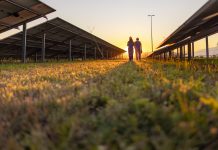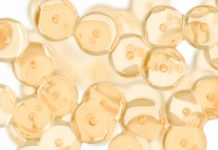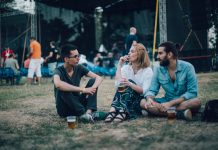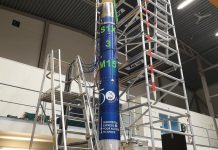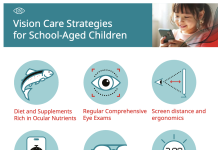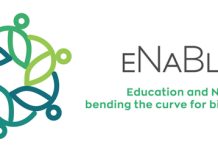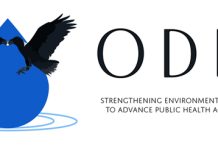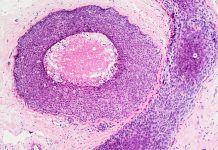Open Access Government produces compelling and informative news, publications, eBooks, and academic research articles for the public and private sector looking at health, diseases & conditions, workplace, research & innovation, digital transformation, government policy, environment, agriculture, energy, transport and more.
Home Search
en - search results
If you're not happy with the results, please do another search
Transforming NHS trusts: How SMS technology delivers efficiency compliance, and sustainability
NHS Trusts are facing a myriad of challenges, including staffing shortages, disconnected systems, and financial pressures. SMS Technology offers solutions, including operational management software that digitises compliance and audits, freeing up significant staff time and promoting sustainability through reduced paper usage.
Sentinel-1D set to launch this November on Europe’s Ariane 6 rocket
The European Union's Earth observation capabilities are about to take another leap forward as Sentinel-1D, the latest addition to the Copernicus satellite family, prepares for launch on 4 November 2025.
Resilience as a metric: Why midlife interventions matter more than ever
Dr Rebecca Crews and Heather Makar from Renue By Science advocate for changing health policy to prioritize proactive resilience maintenance over reactive disease treatment, especially during midlife. They emphasize the benefits of NAD+ biology as a measurable intervention framework.
Cambridge scientists unlock quantum secret that could transform solar power
Researchers at the University of Cambridge have discovered a previously unknown quantum mechanism in an organic semiconductor that could significantly enhance the capture and conversion of solar energy into electricity.
Svenja Espenhahn – Canadian Rare Disease Network
Svenja Espenhahn, PhD, is the Manager of the Canadian Rare Disease Network (CRDN), where she leads strategic coordination across national partners to advance rare...
Simon Robertshaw – Ravensbourne University London
Since completing his master’s from the Royal College of Art, Professor Simon Robertshaw has worked across the commercial, cultural and artistic sectors. Simon has...
£2.4m funding to develop non-invasive treatment for keratoconus
University of Liverpool researchers receive £2.4 million to advance a minimally invasive treatment for keratoconus, aiming to improve patient access and reduce NHS costs.
Fueling bone regeneration by rewriting immune metabolism
Chima V. Maduka, DVM, MS, PhD, and Christopher H. Contag, PhD, provide insights on tuning immunometabolism to resolve inflammation and promote repair at the bone–biomaterial interface.
The integration of artificial intelligence into personalized medicine
Priya Hays, CEO and Science Writer at Hays Documentation Specialists, LLC, discusses the integration of Artificial Intelligence (AI) into personalized medicine (PM), highlighting its potential to enhance healthcare, particularly in genomic medicine and precision oncology.
Resident doctors vote 97% for strike action in fight over jobs and training
Resident doctors in England went on strike with a 97% majority, protesting the lack of training posts, job insecurity, and pay erosion.
Adolescent polysubstance use: Time for a new public health approach
Ronan Fleury and Mary Cannon discuss the growing trend of polysubstance use among adolescents and highlight the need for a new public health strategy that reflects the complexities of adolescent substance use.
Molecular coating boosts single-photon purity in tungsten diselenide
Northwestern University researchers develop a molecular coating for tungsten diselenide, boosting single-photon emission purity by 87%, advancing quantum technology reliability.
Rocket-hardened essential bacteria: Key to surviving the journey to Mars
A world-first study proves microbes essential for human health can survive the extreme forces of a space rocket launch and re-entry unharmed.
This finding by RMIT University is a major step toward sustaining life on long-duration missions to Mars.
Screen time and myopia: Options for children’s vision in a digital world
With mounting evidence linking screen time to myopic progression, interest is growing in developing behavioral and nutritional vision care strategies to promote long-term ocular health in the digital age.
The eNaBlS project (Education and Nature-Based Solutions: Bending the curve for biodiversity)
The eNaBlS project is a three-year Horizon Europe initiative promoting a nature-positive society by integrating Nature-Based Solutions and biodiversity into higher, technical, and vocational education across Europe.
Lund University: Advancing Experimental Infection Medicine and Global Partnerships for Epidemic Preparedness
Lund University (LU) is one of Scandinavia’s leading research institutions, with a strong commitment to tackling global health challenges through science and international collaboration.
Simple genetic test may predict breast cancer before it turns invasive
Scientists have developed a genetic risk score that can flag which women with abnormal breast cells could progress to invasive cancer.
Food waste as a complex social system: How computational social science can help
Researchers in Norway use computer modeling to understand the social complexities of food waste and to test potential interventions that could be part of the solution. How can computational social science contribute to this understanding?
Removing systemic barriers to register overseas trained doctors in New Zealand while preventing their...
Dr Charles Mpofu and Dr Dianne Wepa discuss removing systemic barriers for overseas-trained doctors registering in New Zealand while also addressing mental health challenges.
Is Dwell time in the green transition at risk when trade balance rise shotgun?
Is dwell time in the green transition at risk when trade balances ride shotgun? Dennis Jul Pedersen, Port Director at the Port of Esbjerg, explores.




